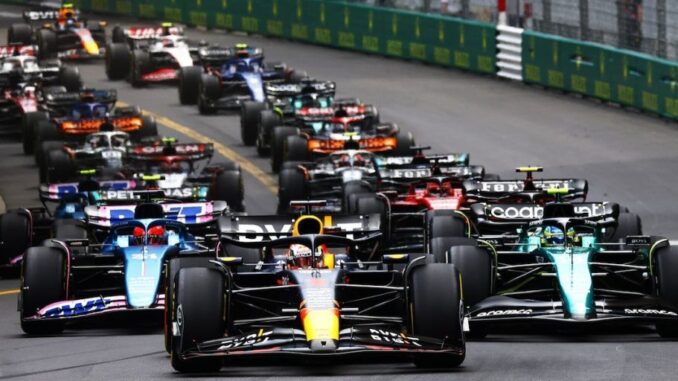
Zanzibar has emerged as an audacious contender for an African event on the Formula 1 motorsport calendar. Backed by the government, revered competitors, and the sport’s management, there is unanimous agreement on the significance of bringing this thrilling event to the continent. The presumption so far has been that South Africa was the obvious candidate. Zanzibar thinks otherwise.
Six decades after gaining independence, the island of Zanzibar could make motorsport history by ensuring that Tanzania becomes the second African country after South Africa, to secure the coveted rights to host Formula 1. According to Sportface.it, an Italian sports platform, the semi-autonomous island province has been diligently pursuing admission as one of the Formula 1 calendar’s venues, for the past five years – and is now being taken seriously.
Leading the charge is the Zanzibar Investment Promotion Authority, which has tenaciously championed the cause. Undeterred by the substantial financial commitments required, the authority has persisted in its quest to bring this global sporting extravaganza to Zanzibari shores.
Zanzibar is undergoing an infrastructure overhaul on a scale not witnessed since independence, with plans to turn the archipelago famed for its pristine beaches and narrow-alleyed old towns into a modern metropolis.
In September last year, Tanzania’s AICL Group and Edinburgh-based investment company Crowland Management unveiled designs for a US$1.3 billion glitzy skyscraper, while the world’s tallest timber tower, the Burj Zanzibar, is planned for the island’s Fumba town, near Zanzibar city.
The journey to host the Formula 1 Grand Prix will demand a significant investment of over $500 million. This monumental undertaking includes the construction of a racetrack, which alone is projected to take between four and six years to complete.
For Zanzibar, however, the visionary blueprint also encompasses additional world-class facilities including, luxurious hotels, a water park and natural parks with the costs of the track offset by ensuring the facility offers adjacent world-class tourist attractions and services to pull in a loyal F1 fan base.
Beyond the sheer audacity of the initiative, Salim Turky, a Tanzanian parliamentarian who is also the deputy spokesperson for the project, emphasises that “it will be a game changer, not for the race itself, but because it will bring Africa and Zanzibar onto the world stage of tourism and services”.
Gaining support from esteemed figures within the racing community has bolstered the case for rekindling motorsport’s flame in Africa. Iconic figures such as former Italian Formula 1 driver Giancarlo Fisichella and multiple F1 title winner Lewis Hamilton have thrown their weight behind the campaign to bring the race back to the continent.
Hamilton, the seven-time champion of the sport, revealed his fervent desire to race in Africa during a recent interview with ESPN. “I have been chatting about having a race in Miami and the next one I’ve been talking about is South Africa … It’s a real big dream for me to race in South Africa, and race in Africa in my career is a huge, huge dream for me,” he explained.
Besides, Formula 1 President Stefano Dominecelli has unequivocally in the past declared the significance and interest of the managers to have the sport back in Africa describing it as “a top priority”. In an interview with Sky Sports in April, he indicated, “We need to find the right partners, the right middle-term plan … What I want to avoid is that we go there one year and then forget it”.
While Kyalami Circuit, to the north of Johannesburg, which hosted the 1992 and 1993 Grand Prix is the readiest option, efforts to host the 2022 edition collapsed midway due to financial constraints. Zanzibar is not only a new alternative but also one that comes with much-needed financial commitments.
Source: How we made it in Africa
